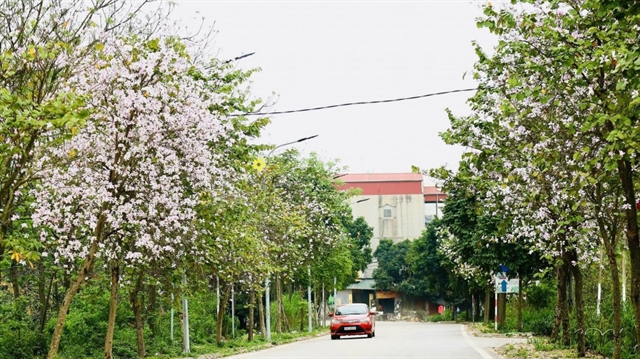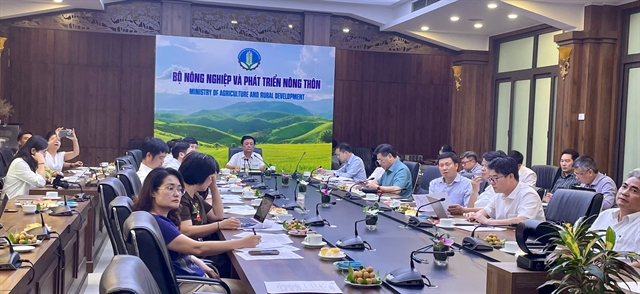 Society
Society

 |
| Participants at the conference. — VNS Photo Tố Như |
HÀ NỘI — Ministries, sectors and local departments are under pressure to ensure that registered advanced new-style rural communes and districts meet their 2024 targets.
Delays caused by the COVID-19 pandemic and tropical storm No. 3 have slowed progress.
Minister of Agriculture and Rural Development, Lê Minh Hoan, called for intensified efforts during an online conference on Wednesday.
He urged localities to mobilise all available resources and diversify communication campaigns to raise awareness of the New Rural Development (NRD) programme.
Key challenges remain, including rigid waste management regulations and difficulties in the One Commune One Product (OCOP) programme, where many products lack the competitive edge needed for market success.
Minister Hoan also stressed the importance of achieving at least one certified new-style rural commune per district, by way of setting an example for others.
He highlighted China’s rural development programme as a model, advocating for pragmatic, localised solutions to address residents’ issues quickly.
On multidimensional poverty, minister Hoan called for targeted support.
Local authorities should identify specific causes of poverty and provide tailored assistance, such as increasing incomes through OCOP development and production-consumption linkages.
Reporting on the progress of the National Target Programme for New Rural Development, Ngô Trường Sơn, head of the central NRD Coordination Office, said that to date, 6,320 out of 8,162 communes have been certified as meeting the NRD standards.
Twenty-two centrally governed provinces and cities have achieved 100 per cent certification.
According to reports and local registrations, by the end of 2024, an estimated 79 to 79.5 per cent of communes will be recognised as meeting NRD standards, nearing the set goal of 99 per cent by 2025.
Challenges persist
However, many localities are still struggling.
In Lạng Sơn province, 98 communes meet NRD standards, but progress is slow in some parts due to scattered populations and poor infrastructure, said Nguyễn Hữu Chiến, director of provincial Department of Agriculture and Rural Development.
Nam Đàn district in Nghệ An province, which is set to become a model new rural area, lacks the resources to meet its 2025 goal.
"The Ministry should petition the government to introduce appropriate support policies, ensuring that residents in these difficult areas avoid falling back into poverty and remain motivated to complete the NRD objectives," said Nguyễn Văn Đệ, a representative of Nghệ An province’s Department of Agriculture and Rural Development.
An Giang Province’s vice chairwoman, Nguyễn Thị Minh Thúy, raised concerns about the poverty reduction criterion, arguing that the set rate of under four per cent is unrealistic for many areas.
Other provinces face delays in digital transformation and specialised NRD programmes like rural tourism.
Environmental targets are also lagging.
Only 80 per cent of communes meet environmental and food safety standards, well below the 90 per cent goal for 2025.
Overlapping oversight by multiple ministries complicates progress, particularly in northern mountainous regions and the Central Highlands.
Nguyễn Hoàng Ánh, from the Environmental Pollution Control Department, called for provinces to establish solid waste treatment models to enhance environmental criteria outcomes.
“Localities must allocate resources to maintain waste treatment facilities while keeping residents’ satisfaction high,” Ánh said.
Vũ Ngọc Hưng, deputy director of the Department of Finance at the Ministry of Planning and Investment, said that some provinces still have districts failing to meet NRD criteria.
By 2025, the Prime Minister's plan requires these shortcoming be addressed, with central budget support available. — VNS




